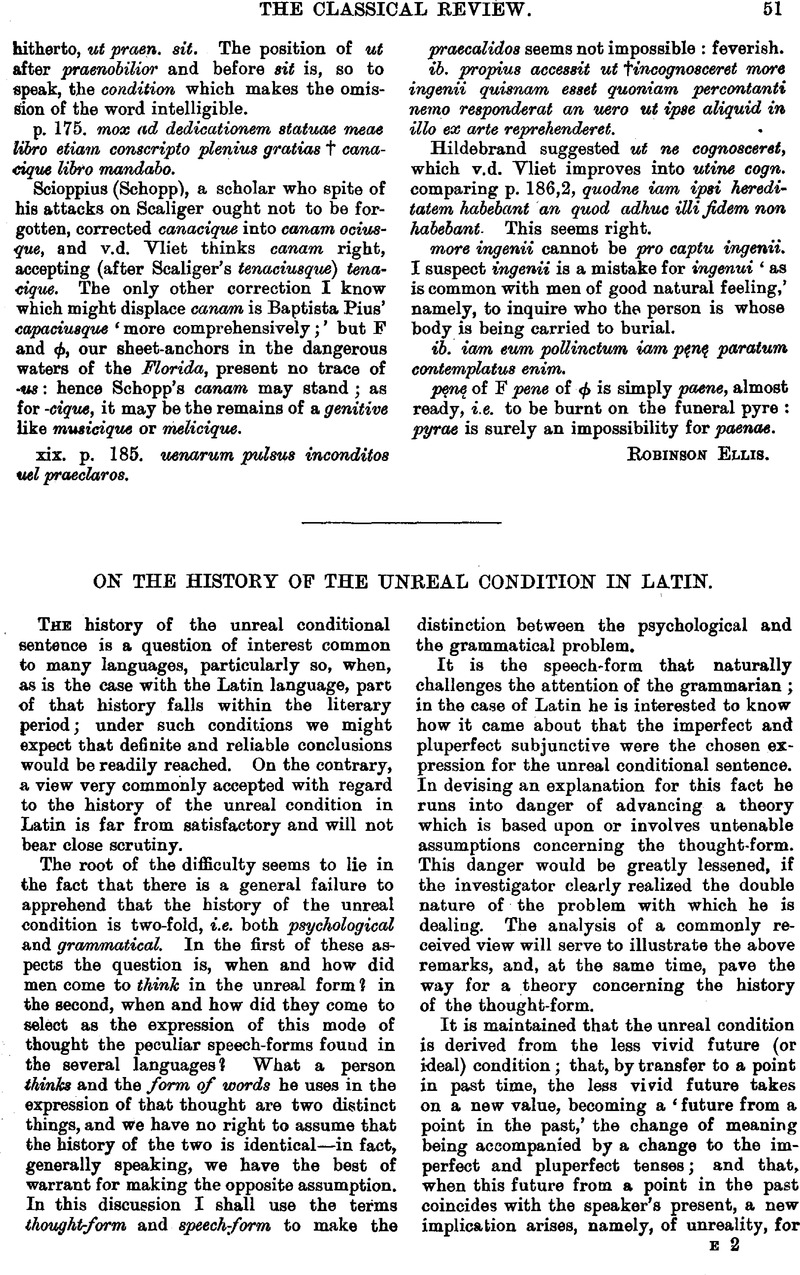No CrossRef data available.
Published online by Cambridge University Press: 27 October 2009

page 52 note 1 For a full statement, see Greenough, Harvard Studies, Vol. VII. Similarly C. Harrison (Classical Review, IV, p. 297) speaks of ‘potentials of the past not yet developed into unreals.’ Blase (Geschichte des Irrealis, Erlangen 1888) betrays some confusion of thought; see p. 16.
page 52 note 2 I quote from the edition of Goetz and Schoell.
page 52 note 3 In the passage quoted doubtless Epignomus helped out his ambiguous speech-form by lubenter and his tone of (mock) apology: these things, however, are merely partial aspects of the speech-form, and in no way affect the conclusion reached above.
page 53 note 1 To compare the late rise of a specific unreal speech-form to the late use of such a form by children is misleading: the children doubtless fail to use an already provided speech-form from a failure to appreciate the thought-form of which it is the expression: we are not to think of such defective thought-power in the case of Plautus.
page 53 note 2 I use the phrase ‘existing or past’ rather than ‘present or past’ that anything temporally as broad as the general truth may be included: e.g. Cicero, p. Arch. xi. 29, si nihil animus praesentiret in posterum; this clause is suggested by the general truth that the soul does look forward to the future, and represents this general truth as contemporaneously replaced by an opposite state of affairs.